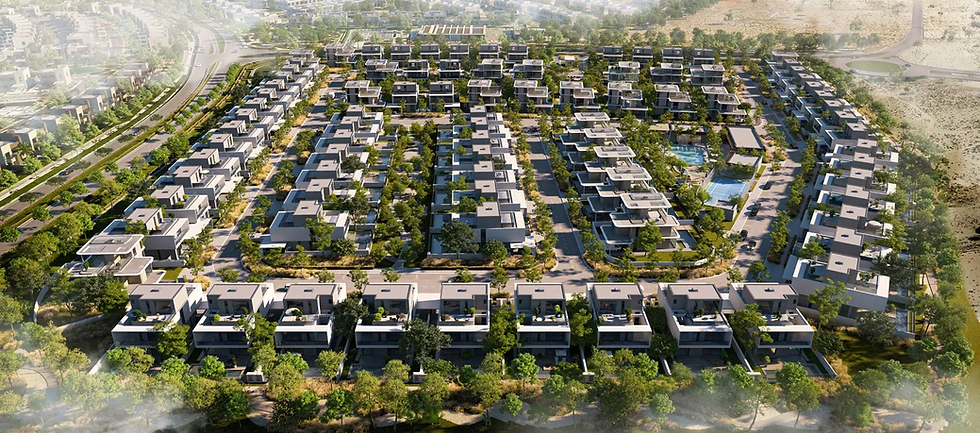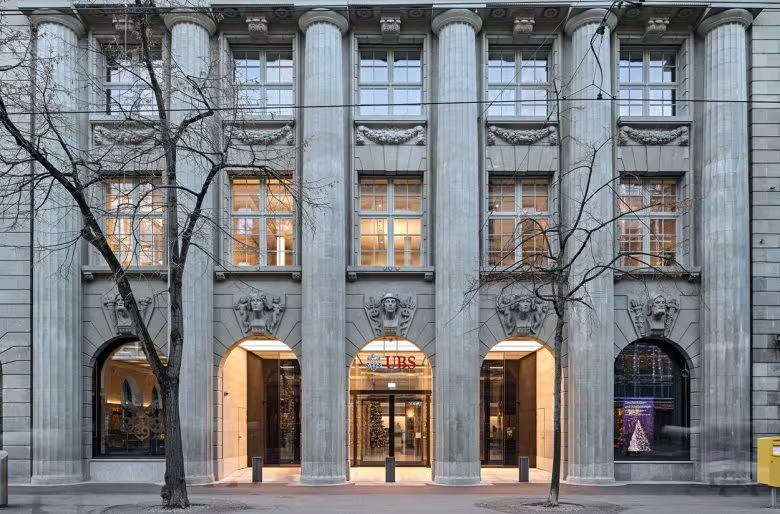Freehold vs Leasehold Properties in Dubai
- Hamza Alavi
- Nov 1, 2024
- 4 min read
Updated: Oct 29, 2025
Dubai's real estate market provides a wide range of property ownership options. For expatriates and investors, understanding the distinction between freehold and leasehold properties is essential when considering a purchase. This comprehensive article explores both options to offer valuable insights and assist prospective buyers in making informed decisions.
Understanding Free Hold Property
A freehold property grants buyers complete ownership of both the property and the land it occupies, with no time restrictions. This ownership is permanent and can be freely transferred or sold at the owner's discretion. In Dubai, foreign nationals are allowed to purchase freehold properties within specific areas designated as freehold zones.
It’s called “Freehold” because the buyer owns the land and the building on it indefinitely. This is the most complete form of ownership. Moreover, The owner has full control over the property and can modify, sell, or pass it on through inheritance.

Benefits Of Free Hold Property:
1. No Residency Requirement: Unlike many real estate markets, investors in Dubai do not need to be residents to purchase freehold properties. Foreign nationals are eligible to acquire freehold properties in designated zones, offering global investors the flexibility to invest without needing relocation or obtaining residency permits.
2. High Return on Investment (ROI): Dubai offers high rental yields, especially in prime freehold areas such as Downtown Dubai, Dubai Marina, and Palm Jumeirah. With a steady demand for rental properties from expatriates and tourists, investors can capitalize on both long-term tenants and short-term rentals. This potential for significant ROI makes freehold properties a highly profitable investment
3. Residency Visa & Sponsorship: One key advantage of investing in freehold property in Dubai is the eligibility for residency visas. Investors who purchase property valued at AED 750,000 (~USD 204,000) or more can qualify for a 3-year residency visa, while those with property investments of AED 2 million (~USD 500,000) or more may be eligible for a 10-year Golden Visa. These visas offer renewable residency rights and provide the investor with the flexibility to live, work, or study in the UAE.
Additionally, Property owners with residence visas can sponsor family members further enhancing the benefits of property ownership. This visa option is a valuable incentive for investors seeking long-term residence, as it offers both lifestyle opportunities and business advantages without requiring full-time employment or separate sponsorship. For international investors, it also opens doors to greater regional mobility and access to one of the world's most dynamic business hubs.
4. Maximize Net Returns: Dubai’s real estate market operates in a tax-free environment for both personal income and capital gains. Investors can enjoy the profits from property sales and rental income without the burden of additional taxes, making freehold properties an appealing choice for optimizing returns.
Furthermore, With freehold ownership, investors can explore multiple avenues for property use, such as leasing, short-term rentals (through platforms like Airbnb), or even re-development, depending on the property’s location and potential. This flexibility allows investors to diversify their income streams and adapt to market trends.
Understanding Lease Hold Property
A leasehold property in Dubai refers to a type of real estate ownership where the buyer is granted the right to occupy and use a property for a specified period, typically ranging from 10 to 99 years. Unlike freehold properties, where ownership includes both the land and the structure, leasehold ownership only provides rights to the building or unit itself while the land remains owned by the lessor (the landowner).
Key Characteristics:
1} Fixed Term: Leasehold properties are acquired for a predetermined period, which can vary based on the agreement. At the end of this term, the rights to the property revert back to the landowner unless the lease is renewed or extended.
2} Rental Payments: Typically, leaseholders are required to pay an initial lease premium followed by annual rental payments to the landowner. These payments can be influenced by market conditions and the terms negotiated in the lease agreement.
3} Legal Framework: Leasehold properties in Dubai are governed by specific regulations outlined by the Dubai Land Department (DLD) and the Real Estate Regulatory Agency (RERA). These regulations provide a framework for the rights and obligations of both lessors and leaseholders, ensuring transparency in transactions.
Benefits To Investors
1. Lower Entry Costs: One of the primary advantages of leasehold properties is the lower initial investment compared to freehold properties. Leasehold options typically require a smaller upfront capital outlay, making it easier for investors to enter the market and diversify their portfolios without significant financial commitment.
2. Long-Term Security: Lease terms can extend up to 99 years, offering investors significant long-term security without the necessity of full ownership. This duration allows investors to enjoy stability in their investments, providing ample time to capitalize on rental income and property appreciation. The long lease term can also attract tenants looking for stability, thus ensuring consistent occupancy rates.
3. Access to Leasehold ONLY Zones.: Investors in leasehold properties gain access to high-demand commercial and residential areas that may not be available as freehold zones for foreign investors. Locations such as parts of Dubai Silicon Oasis and Dubai Festival City are often exclusively leasehold, allowing investors to secure premium properties in sought-after neighborhoods. This access can enhance rental yields and property appreciation, as properties in prime locations generally experience higher demand.

4. Generate Passive Income: In leasehold agreements, the freeholder typically retains responsibility for property maintenance. This arrangement significantly reduces the obligations of the investor, allowing them to focus on generating income rather than managing maintenance issues. For investors who may not reside in Dubai or lack the resources to manage property upkeep, this aspect can be particularly advantageous, enabling a more passive investment strategy.
5. Flexibility for Short-Term Investments: Leasehold properties are ideal for investors seeking short to mid-term investment opportunities. The flexible lease terms allow investors to enter and exit the market more readily than traditional long-term ownership structures. This flexibility is particularly beneficial in a rapidly changing market, enabling investors to adapt to new trends or capitalize on emerging opportunities without the long-term commitment associated with freehold properties
Conclusion:
When purchasing property in Dubai, understanding the distinction between freehold and leasehold ownership is critical. While freehold ownership provides full control and flexibility, leasehold offers a temporary right of use with certain limitations. Buyers should assess their long-term objectives and financial capabilities to make an informed decision.



Comments